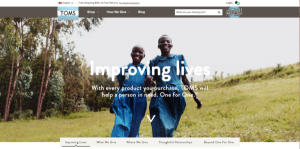Do hashtags matter? This is a question asked recently by Patrick Coffee of PR Newser at AdWeek. Should social media managers be skipping the hashtag?
Rather than guess, let’s take a data-driven approach. Before we dig in, a bit on our methodology. SHIFT examined the social media engagement of posts from the Fortune 10 companies over the last year, June 15, 2014 – June 14, 2015:
- Apple
- Berkshire Hathaway
- Chevron
- CVS
- Exxon Mobil
- Ford Motor Company
- General Electric
- General Motors
- Phillips 66
- Starbucks
- Walmart
Where a brand had more than one social media page or profile, we chose the page with the largest audience. On Facebook, we looked at Likes, Comments, and Shares of all posts since June 2014. On Twitter, we looked at Favorites and Retweets. We excluded retweets and reshares of other content, opting to look at original content only.
Let’s begin with Facebook. The Fortune 10 are active posters on Facebook, totalling a little over 3,000 posts in a year:
Interestingly, most of the Fortune 10 don’t use hashtags in their posts, as shown above.
How many likes, comments, and shares did they rack up? Millions:
At first glance, pursuing a no-hashtag policy seems like the sound choice. However, basic math suggests that we should look at the average number of likes, comments, and shares per post to account for the 10:1 difference in no-hashtag posts vs. hashtag posts. The results are illuminating:
We see that on average, posts with hashtags get more likes and shares, whereas posts without hashtags get slightly more comments. Keep in mind that just because a hashtag is in a post doesn’t mean it causes more likes or shares. It just means that posts which are shared more have hashtags in them.
Let’s move to Twitter. Hashtags are far more prevalent among the Fortune 10’s tweets:
Fortune 10 companes also tweet significantly more than they post to Facebook, with over 12,500 posts to Twitter in a year in close to a 50/50 split.
How do the numbers stack up in a 50/50 matchup? Posts with hashtags accrue more favorites and retweets:
And to be mathematically balanced, let’s look at the average favorites and retweets per post:
We see that posts with hashtags are favorited and retweeted more than double the posts that are not. Again, having a hashtag isn’t necessarily causing a post to be shared more. It’s simply featured in the posts that were shared more.
The question you’re asking yourself right now is whether or not you should be adding more or fewer hashtags to your social media posts. It’s important to keep in mind that the numbers above are for the Fortune 10. These are the world’s largest companies, and they have dramatically different audiences than many of our businesses. Your audience will behave differently.
That said, should you change your hashtagging habits? The answer is: test for yourself. Over the next 2 months, alternate weeks. One week, use hashtags. One week, don’t use hashtags. Alternate for the next 2 months, then count up your likes, comments, shares, retewets, and favorites. See which posts get more engagement and which posts get less engagement.
If you see a distinct change in engagement on posts with hashtags for your specific audience, you know hashtags matter to your audience. If you don’t see the needle move, then you can safely discount hashtags as a causal factor in social media engagement for your audience.
(255)
Report Post
















